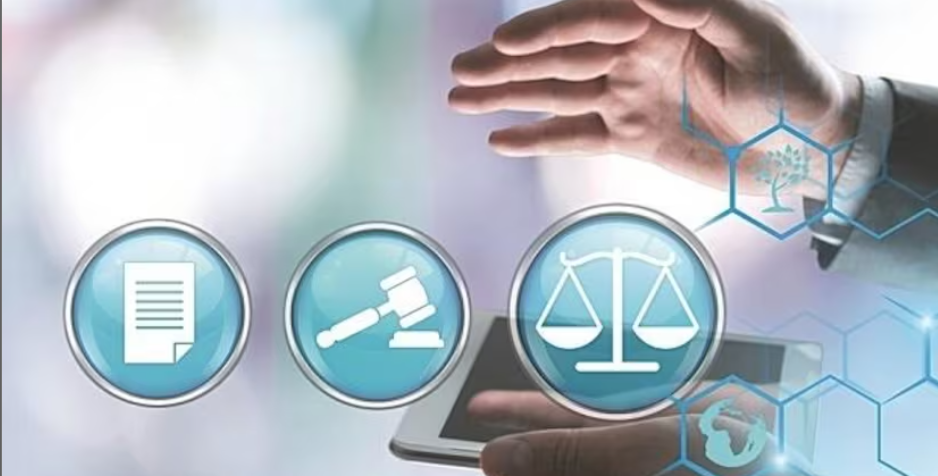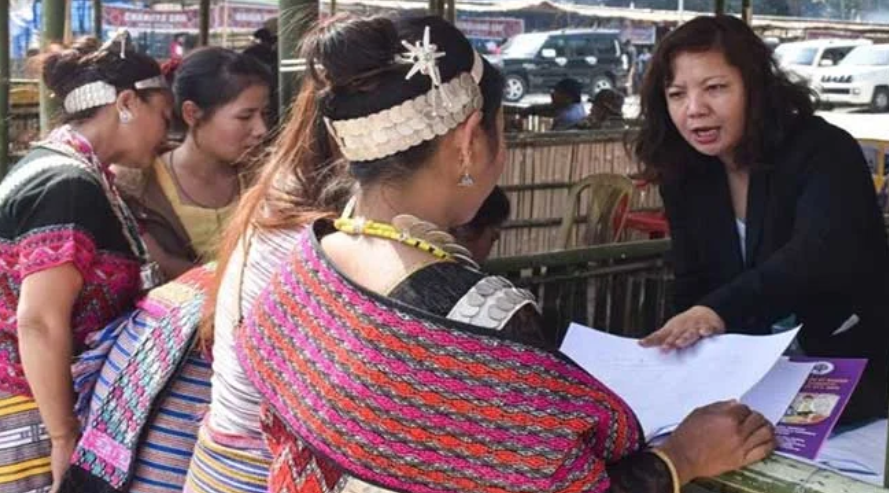Providing Legal Aid during War
At
the very primary level it is important to make it clear that a conflict means a
disagreement between people with opposing opinions or principle.1 It
can be of different levels be it intrapersonal, interpersonal, intergroup or
interorganisational2 and it cannot be restricted to just a group of
people but can extend up to countries or group of countries resulting in wars.
It can be at its lowest- disagreement between spouses or the most extreme –
war. It is the most crucial time where one needs the help of laws in order to
get what is required in a well civilised society. As the broader theme revolves
around the international aspect. Generally, in international wars the issue of legal
aid arises when war crimes have been committed (with certain exceptions where it’s
during and pre-war too) by the country involved in the war.
As
far as codes and conducts of wars are concerned it is one of the oldest codes
defined in the Mahabharata too that codifies the rule of war, like no
war after sunset, no attack on injured opponent18. Similarly in
modern times we have four Geneva conventions and three additional protocols to codify
war crimes.
Being insightful and practical, Kautilya
emphasised on the need of treating the defeated people and their kings
with kindness. He assured them that
their animals would be secure, and that those who "possessed of good
treasury and army" would be reinstated.16
Similar
to what is allegedly said in the Manu Smriti, international humanitarian
law prohibits attacking people during times of conflict. Manu states explicitly
that "one who surrenders or is without arms or is sleeping or is naked, or
with hair united (i.e. unprepared) or an onlooker (non-combatant) must never be
killed," regardless of the opponent's beliefs or lack thereof, or if he
was engaged in a just war.17
In
accordance with article 147 of 4th Geneva convention war crime
can be defined as one in which customs and laws of war are violated, atrocity against
individual or property, unlawful confinement of person protected under law, deporting
civilians for slavery ill treatment or murder of civilians, ill treatment,
murder of war prisoners, hanging or killing without due procedure, torture ill
treatment or biological experiment on common people, unnecessary military destruction.3
Similarly
acts prohibited under article 7 of Rome statue is also considered as a war
crime such as atrocities against the civilians – murder, rape, genocide,
slavery, torture, enslavement, crime of apartheid etc. during, pre or post war.4
The
Convention on the Prevention and Punishment of the Crimes of Genocide (1948)
provides punishment of genocide u/a 4 of the code.15
In
the case of violation of the above, comes the prominent role of NGOs because generally
after war states usually were not in a condition to work on identifying and
proceeding further to forum in order to get justice. Apart from that sometimes
they work as a safety valve to those who have committed such activities under
some political and social pressure (impunity).
NGO’s
central role comes into play before during and after investigation.5
Informing others
(media, general public) through various mediums of communication in order to get
information about victims and providing them representation in legal
proceedings, helping them to understand their rights, reach to legal systems
and make informed decisions5a.
Monitoring
and documentation of human rights violation and other
abuses which act as evidence for further legal actions and advocacy efforts used
by NGOs. They can provide information to the Office of the Prosecutor on crimes
committed, a particular case, the political and historical background of
violations of human rights, or the ability or desire of a state to look into or
prosecute crimes. The prosecutor might benefit from this knowledge5b.
The Ukrainian non- governmental organisation has carefully documented 18000
cases in their database. They have an exhausted team members who have
investigated war crimes, crime committed in Donbas region in 2014, when separatist
group took control of eastern part of country.7
Eva
Tomic, Director of OHCHR in May 2010, said that working in condition as in
Palestine had been a great challenge, these challenges had increased continuity
of impunity, that the upholder of war crimes want (violates human rights,
unwillingness to prosecute), but their volunteers have done a great job in
transferring stories during operation that are against human rights.9
Serving
as a link between Court and victim, victims generally don’t
have direct action to legal remedies as they are one of the vulnerable sections
of society. They generally reach to victims and witnesses and inform them about
procedures at the court and prepare their work. Even work of documentation and
advocacy.5c
Even
if not directly to the prosecutor, they can reach the government or U.N.
security council to refer the case to the court.
In case of Armed Activities on the Territory
of the Congo (Democratic Republic of the Congo v. Uganda)6 before Court
of International Crime in which the Registry of the Court applications to
institute proceedings against Burundi, Uganda, and Rwanda for armed aggression
that violated the Organisation of African Unity and the United Nations'
charters outrightly submitted. Six communications on the situation were
received by the prosecutor, including two comprehensive reports from non-governmental
organisations. The situation appears to have been the Prosecutor's inspiration
to designate it as "the most urgent situation to be followed as a result
of the NGOs' reports.
Amnesty
International has requested International Court of Crimes for investigation
into Israel, Gaza and surroundings in both 2009 and 2014 presented concrete
evidences that war and other crimes under international laws has been done by
armed group of both Israel and Palestine. 10
Similarly
in 2020 March Amnesty has supported the prosecutor of International Criminal
Court against both as from last 50 years they have committed serious offences
under human rights and international laws, violations in both Israel and Occupied
Palestinian Territory (OPT).11
The role extends up-to providing training to
leaders and activists in order to enhance their understanding of human
rights law and other conflict resolution mechanisms, doing this to empower
communities.
NGOs
as amicus curiae have also contributed their part in
getting justice delivered to those in need. ICC Code of Professional
Conduct for Counsel applies to the amicus curiae, and the court will
permit such representation if it deems it necessary for the appropriate
resolution of the matter.13 Palestinian Centre for Human Rights
(PHRC) in march 2020 has submitted two briefs in the court of International
Crimes as amicus saying that there is a reasonable basis to believe that in the
occupied territory of Palestine (West bank, including East Jerusalem and Gaza
strip) international crimes have been committed. Even submitted another amicus
on the behalf of the general public of Palestine residing in the Gaza Strip.8
Raji Sourani, Director of PCHR in annual general meeting stated that they are
consistent in working with ICC and providing video and other witnesses over
video conferences and assisting victims to get fair shake.
NGOs
establish cooperation with Legal Authorities: To guarantee a coordinated
response to legal demands during conflicts, NGOs work with both national and
international legal authorities.
Amnesty
International has requested International Court of Crimes for investigation
into Israel, Gaza and surroundings in both 2009 and 2014 presented concrete
evidences that war and other crimes under international laws has been done by
armed group of both Israel and Palestine. 10
Similarly
in March 2020 Amnesty has supported the prosecutor of International Criminal
Court against both as from last 50 years they have committed serious offences
under human rights and international laws, violations in both Israel and
Occupied Palestinian Territory (OPT).11
Phillip
Luther, Director of North Africa Research and Advocacy mentioned that following
decades of war crimes and other crimes against international law committed in
the Occupied Palestinian Territories, the decision made by the Prosecutor of
the International Criminal Court represents a historic step towards justice.
This declaration presents a critical chance to end the pattern of war crimes
and crimes against humanity being unpunished.12
Apart from lobbying directly to ICC and state in order to admit cases and providing relevant material for the case, NGOs also help in lobbying for change in international, national and regional laws. Numerous forms an NGO will try to adopt in order to get the target in their mind. Letter writing campaign is one of the influential, officials were bombarded with letters. Demonstration is the form which attracts media coverage (conventional as well as social media), as a result NGOs get more support from the public and their demand reaches the public eye, creating a pressure of shame lobbying to get successful. E-mail, petitions through internet site blog and social networks are the new form of lobbying.14
Concluding
with the gist, it can undoubtedly be said that NGOs have their own role in timely
and accurate delivery of justice be it at any level. The role of NGOs
predominantly comes into the picture in cases where victims are not in a condition
to approach the legal authority (court or tribunal) because of lack of
awareness of their rights, or some other social and economic constrains they
have with them. In that condition, role of legal aid given by NGOs comes into
the scene. So, all the activities which are breaching the basic humanitarian ground
during wars are considered as war crimes. In that case NGOs have to support
victims in different aspects. Starting from collecting relevant information,
assisting court in various ways (providing with facts and information along
with relevant evidences), serving as a link between victims and courts, working
as amicus curiae, training and educating volunteers to assist other
victims, even sometimes function as pressure group in case state is in a
condition of supporting impunity, lobbying against governments and authorities
in order to get a new rule for protection of interest of society at large or
humanity. So, not just in legal aid it has a role in overall protection of
humanity.
References
1.
Cambridge
dictionary https://dictionary.cambridge.org/dictionary/english/conflict
2.
Level
of conflicts https://openstax.org/books/organizational-behavior/pages/14-1-conflict-in-organizations-basic-considerations
3.
War
crime https://ihl-databases.icrc.org/en/ihl-treaties/gciv-1949/article-147
4.
Crime
against humanities https://www.un.org/en/genocideprevention/crimes-against-humanity.shtml#:~:text=According%20to%20Article%207%20(1,to%20the%20crime%20of%20genocide.
5.
Along
with 5a 5b 5c 5d https://iilj.org/wp-content/uploads/2016/08/Human-Rights-Watch-Report-How-NGOs-Can-Contribute-to-the-Prosecution-of-War-Criminals.pdf
6.
Case
of Armed Activities on the Territory of the Congo (Democratic Republic of the
Congo v. Uganda) https://www.icj-cij.org/case/116
7.
Ukrainian
NGO on war crime by Florence Aubenas https://www.lemonde.fr/en/international/article/2022/10/08/ukrainian-ngos-make-peace-with-authorities-to-work-on-war-crimes_5999589_4.html
8.
PCHR
in Palestine https://www.ngo-monitor.org/key-issues/international-criminal-court-icc-and-ngos/which-ngos-are-involved-in-lobbying-the-icc/
9.
OHCHR
https://www.masader.ps/en/media/news/2144
10.
https://www.amnesty.org/en/documents/mde15/019/2014/en/
11.
https://www.amnesty.org/en/documents/mde15/1986/2020/en/
13.
Rule
103 ICC rule of procedure and Evidence https://www.chathamhouse.org/sites/default/files/events/160125-meeting-summary-shaping-law-civil-society-influence-international-criminal-courts.pdf
14.
Council
of Europe https://www.coe.int/en/web/compass/human-rights-activism-and-the-role-of-ngos
15.
Article
IV pg. no 2 https://www.un.org/en/genocideprevention/documents/atrocity-crimes/Doc.1_Convention%20on%20the%20Prevention%20and%20Punishment%20of%20the%20Crime%20of%20Genocide.pdf
16.
Kautilya,
Artha-shastra, Book VII Ch. XVI
17.
Nagendra
Singh, "India and International Law", S. Chand & Co., New Delhi,
p. 4
18.
Vyasa,
"Mahabharata", Shanti Parva, 96.12-13







👍👍
ReplyDelete👍👍
ReplyDelete👍🏻🙌🏻
ReplyDelete